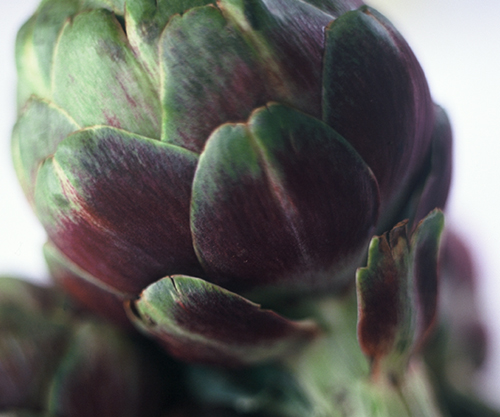
The reason they call Whole Foods "Whole Paycheck" is that while walking its hallowed aisles you can find the most expensive red peppers that ever lived, and also the most expensive salt, and even the most expensive yogurt imaginable. Some of this is justified. The peppers, for example, listen to Mozart as they grow and watch "Baby Einstein" videos. The salt comes from the tears of extremely pure Buddhist nuns living at high altitude. At least, I think so. I'm not really sure, because I've been a little fuzzy of late as we try to feed two people on less than $150 a week, and that means we've been subsisting solely on Whole Paycheck's organic carrots, organic apple peels and organic hummus parceled out a teaspoon at a time. Can you hang on a minute? I'm having a dizzy spell again. Ok, I've had a sip of organic water and I feel better.
Is it worth it to eat organic? Worth the money? Worth the hunt for the store that sells organic? Worth the travel woes when there is absolutely nothing to eat in a hotel and a Cheeze Doodle is staring you down at night in a strange town?
I can back away slowly from a snack food vending machine in a hotel. But what about a study published in the American Journal of Clinical Nutrition that suggests organic food has no nutritional benefits over ordinary food?
Whole Foods, can I have my money back?
Not so fast. Let's look at the data. The researchers reviewed 162 scientific papers published over the past 50 years. They found the nutritional value of organic food wasn't all that different from the cheap stuff.
"A small number of differences in nutrient content were found to exist between organically and conventionally produced foodstuffs, but these are unlikely to be of any public health relevance," said Alan Dangour, one of the report's authors.
Bummer. I might be trying to justify my purchase of organic broccoli costing, by weight, the same as a handful of diamonds, but I have to ask: Did those researchers ask the right questions? Should we only consider nutritional value? People argue that organic tastes better, and research studies show that some organic foods contain more antioxidants associated with preventing heart disease and cancer. But there's one argument in favor of organic that I really can't get around.
How many different kinds of pesticides would you like to eat for dinner?
A study conducted at the University of Washington's School of Public Health and Community Medicine found that children who ate conventional food carried "significantly higher" metabolites derived from pesticides than children who ate organic. The conventional food kids were, you'll pardon the expression, pissing pesticide derivatives.
The good news is you don't have to buy organic everything -- conventional onions, sweet peas and avocados are ok - here's a full cheat sheet from Dean Karnazes' blog in Runner's World.
In the meantime, I am prepared to make you an offer on that tiny container of organic shaved parmesan.